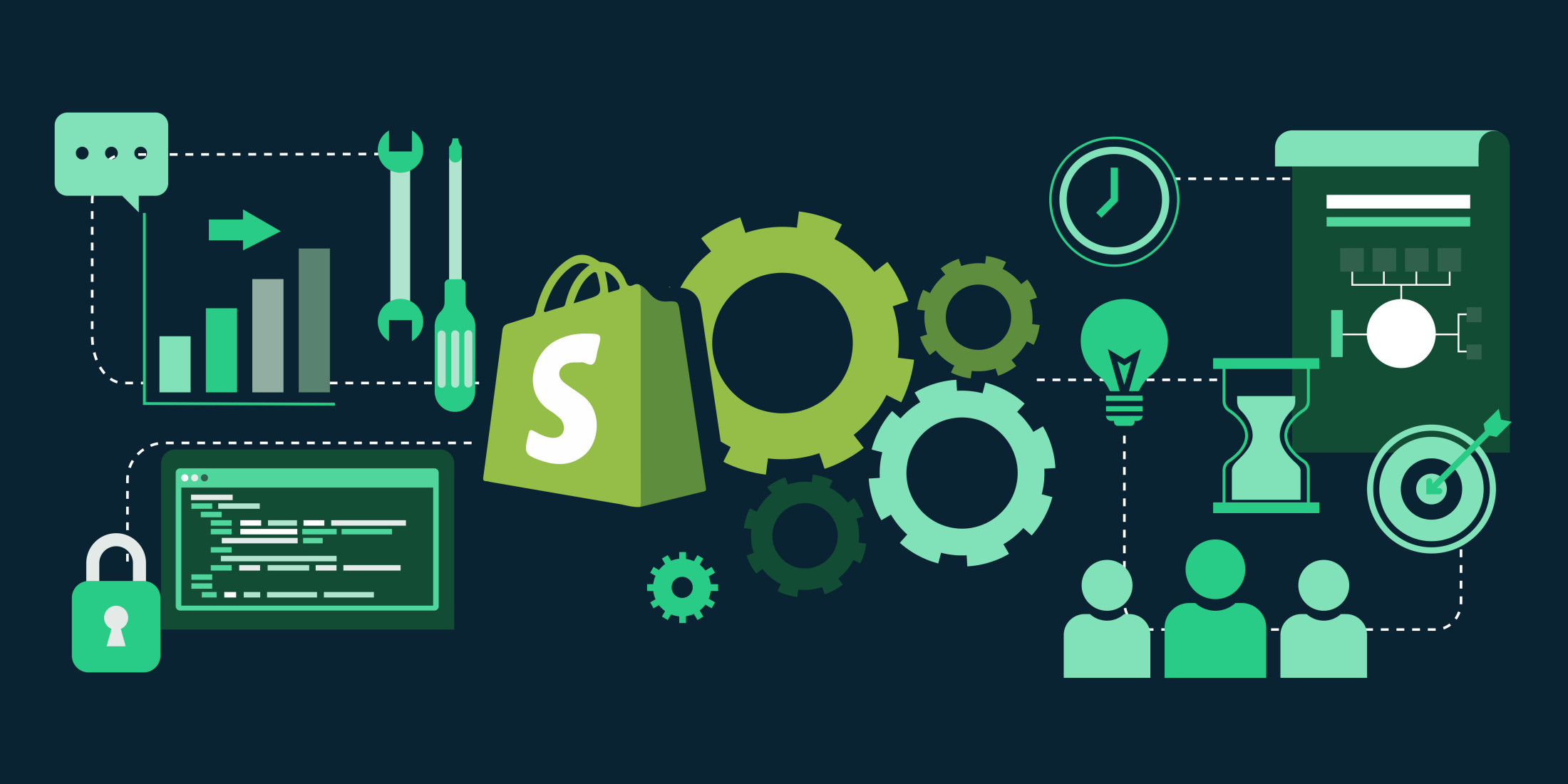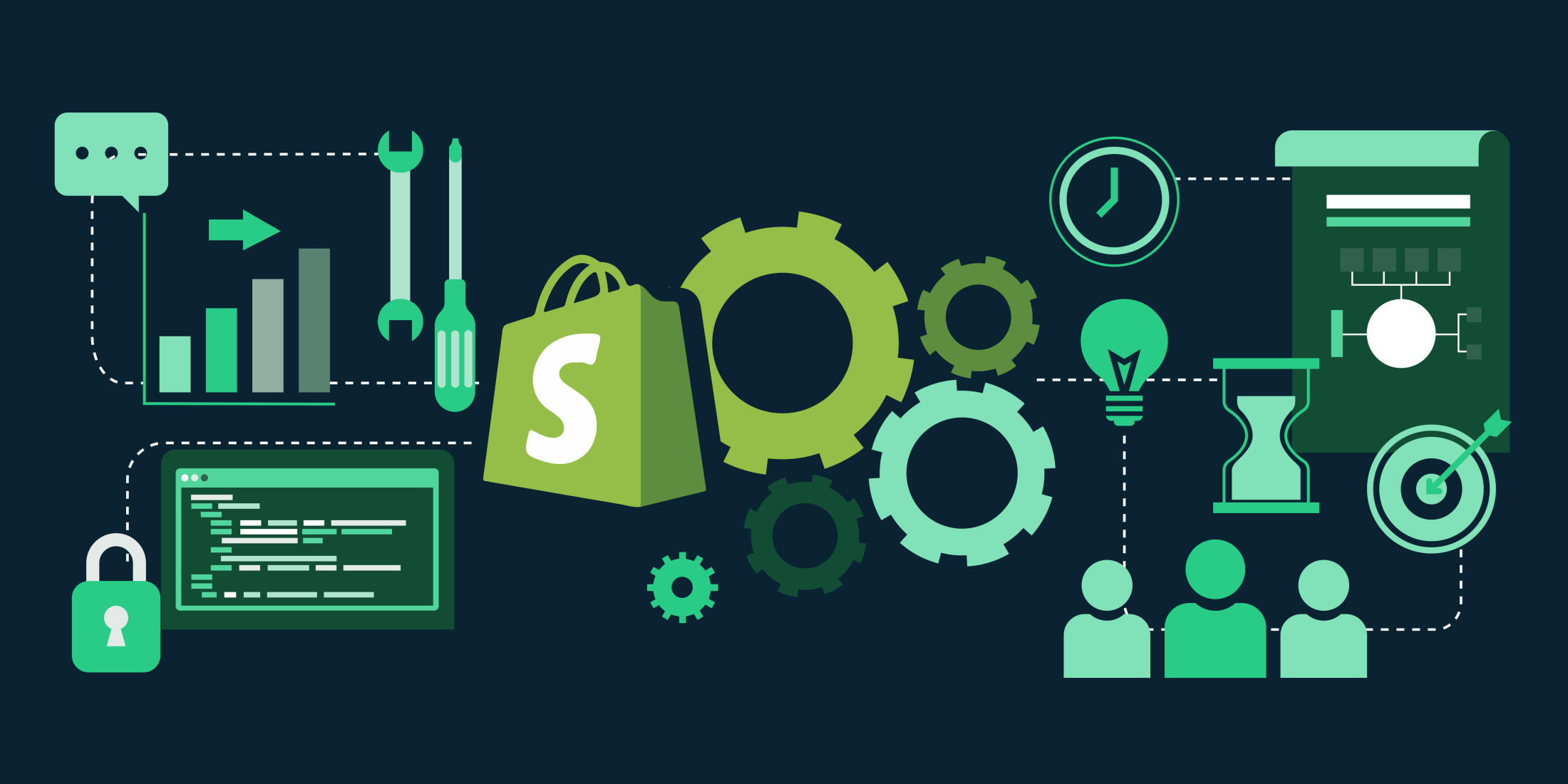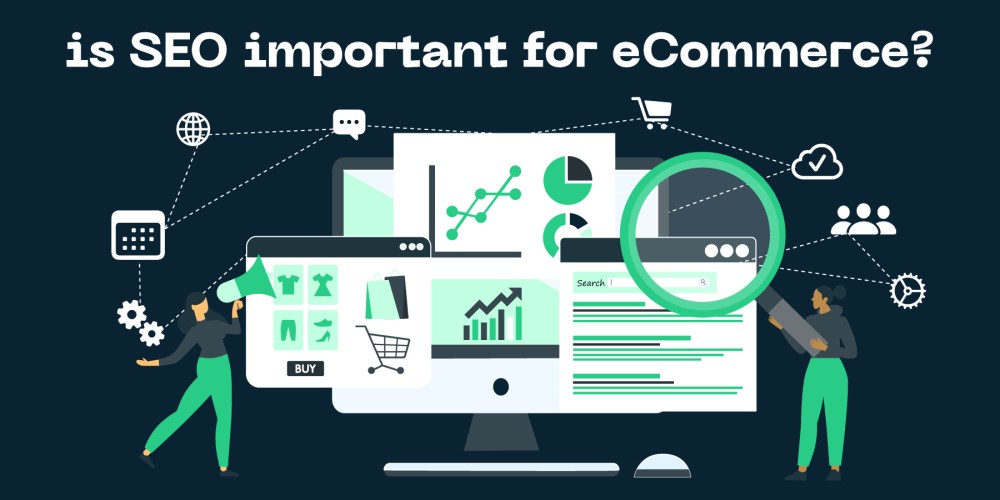How to Build AI Agents from Scratch for Your eCommerce Store

Key Takeaways
- ConvertMate is your go-to solution for using AI agents to boost your eCommerce store's conversions, SEO, and more.
- Understanding and creating AI agents can transform how your online store operates, making it more efficient and customer-friendly.
- By planning and building your AI agent, you can automate tasks and improve your store’s performance.
- Integrating these AI agents with your eCommerce platforms can help you connect seamlessly with CMS, shopping, and analytics tools.
- Continuous learning and monitoring of your AI agents ensure they perform well, handling challenges as they arise.
Introduction to AI Agents for eCommerce
Understanding AI Agents
Understanding AI agents is crucial for eCommerce store owners and marketers who aim to enhance their business’s digital footprint and optimize conversion rates. AI agents, essentially, are software entities that perform tasks autonomously, learning and adapting from data to improve over time. When leveraged in an eCommerce setting, these agents can significantly transform how businesses interact with their customers by offering personalized shopping experiences, streamlining operations, and providing real-time customer support. By analyzing customer behavior patterns, preferences, and purchasing history, AI agents can tailor recommendations and promotional offers that are more likely to convert casual browsers into committed buyers.
Building AI agents from scratch may seem daunting, but it presents a unique opportunity to customize the technology according to your specific business needs. Unlike off-the-shelf solutions, custom-built AI agents can be designed to integrate seamlessly with your existing systems and processes. This bespoke approach ensures that the AI agents are not only aligned with your brand’s voice and mission but also capable of scaling as your business grows. By investing in the development of tailored AI agents, eCommerce store owners can gain a competitive edge by offering a distinctive and engaging customer experience that stands out in a crowded market.
Moreover, the process of developing AI agents is increasingly becoming more accessible, thanks to the availability of open-source tools and platforms. These resources provide a solid foundation upon which store owners and marketers can build, experiment, and iterate. By fostering a culture of innovation and a willingness to embrace new technologies, businesses can harness the full potential of AI agents to automate mundane tasks, anticipate customer needs, and ultimately drive higher conversion rates. The key is to start small, measure impact, and gradually expand the capabilities of your AI agents to address more complex challenges and opportunities within your eCommerce ecosystem.
Benefits of AI in eCommerce
The integration of AI agents into eCommerce platforms offers a transformative potential for online store owners and marketers, aiming to enhance their conversion rates and streamline operations. AI agents, such as chatbots and recommendation systems, can significantly improve customer interaction by providing personalized experiences that are tailored to individual preferences and shopping behaviors. This kind of personalized attention not only enhances the shopping experience but also builds customer loyalty and encourages repeat purchases, which are crucial for the long-term success of any eCommerce enterprise.
Beyond personalization, AI agents are instrumental in automating various operational processes that can otherwise be time-consuming and prone to human error. For instance, AI-driven inventory management systems can predict stock levels and demand trends with higher accuracy, allowing store owners to optimize their inventory holdings and reduce overhead costs. Moreover, by automating customer service inquiries through sophisticated AI chatbots, businesses can ensure that customer queries are addressed promptly and accurately, regardless of the time zone or business hours. This level of efficiency not only enhances customer satisfaction but also frees up human resources to focus on more strategic tasks.
Furthermore, the data insights provided by AI agents can help eCommerce businesses make informed decisions. By analyzing customer data, these agents can identify trends and patterns that might not be evident through manual analysis. This analytical capability enables businesses to tailor their marketing strategies more effectively, targeting the right audience with the right message at the right time. As a result, eCommerce store owners and marketers who harness the power of AI agents are better positioned to increase their conversion rates and ultimately drive business growth. The ability to build these AI capabilities from scratch offers even greater customization and control, ensuring that the AI solutions are perfectly aligned with the unique needs and goals of the business.
Planning Your AI Agent
Identifying Objectives
Identifying objectives is a crucial step when planning your AI agent, especially in the context of enhancing your eCommerce store. As a store owner or marketer, the goals you set will directly impact your AI’s design and functionality. To begin, it’s essential to determine what aspects of your store you wish to improve—whether it’s increasing conversion rates, enhancing customer support, or personalizing marketing efforts. By having a clear understanding of your objectives, you can tailor the AI agent to focus on specific tasks, like recommending products based on customer behavior or automating routine queries to free up human resources.
The lack of clear objectives often leads to the development of AI solutions that are either too broad or too narrowly focused, rendering them ineffective. Therefore, it’s vital to balance ambition with practicality. Set clear, measurable, and attainable goals that can be aligned with your overall business strategy. For example, if your primary objective is to increase conversion rates, your AI agent might focus on analyzing customer data to optimize the checkout process or implementing dynamic pricing to attract more buyers. By identifying such specific objectives, you position your AI agent as a targeted tool that can drive tangible results for your eCommerce store.
Furthermore, it is important to continuously evaluate and refine your objectives as your business grows. The eCommerce landscape is dynamic, and consumer trends can shift rapidly. Regularly assessing how well your AI agent meets its intended goals will allow you to make necessary adjustments and keep your eCommerce platform competitive. Remember, the ultimate aim is to create a symbiotic relationship between your AI agent and your business objectives, driving both efficiency and innovation in your eCommerce operations.
Choosing the Right Tools
Choosing the right tools is a critical step in planning your AI agent, especially when you're aiming to enhance the conversion rate of your e-commerce store. The decision-making process can be complex, given the plethora of AI frameworks, programming languages, and integration platforms available today. The right tools not only streamline the development process but also ensure that your AI agent functions efficiently and effectively within the unique ecosystem of your e-commerce store. As an e-commerce store owner or marketer, it's essential to consider factors such as ease of use, scalability, and compatibility with existing systems.
One important consideration is selecting an AI framework or library that matches your technical skill level and project requirements. For those who are just starting, user-friendly tools like TensorFlow or PyTorch provide robust support and extensive documentation to facilitate learning and implementation. Meanwhile, if your goal is to rapidly deploy AI capabilities with minimal coding, platforms like Microsoft Azure AI or Google Cloud AI offer pre-built models and easy integration with e-commerce platforms. By choosing the right framework, you can significantly reduce development time and focus on customizing the AI features that will drive the most value for your store.
Furthermore, it's crucial to select tools that are future-proof and adaptable to evolving technology trends. As AI technology continues to advance at a rapid pace, opting for tools that offer regular updates and community support can be a strategic advantage. This adaptability ensures that your AI agent remains competitive and responsive to market demands. Consider the long-term maintenance and support when making your choice, as this will impact not only the initial deployment but also the ongoing evolution of your AI solution. By carefully evaluating these aspects, you can effectively plan your AI agent to not only improve your current conversion rates but also sustain growth in the long term.
Building Your First AI Agent
Data Collection and Preparation
Data collection and preparation are indispensable steps when building AI agents, particularly for an eCommerce platform aiming to boost its conversion rates. The quality and relevance of the data you gather will significantly influence the effectiveness of your AI agent. As an eCommerce store owner or marketer, you should focus on collecting comprehensive customer data, product information, transaction records, and website interaction metrics. This data will form the backbone of your AI agent, enabling it to make informed decisions and provide personalized experiences to your customers.
Once data is collected, the preparation phase involves cleaning, organizing, and transforming it into a format suitable for machine learning algorithms. This often includes dealing with missing values, eliminating outliers, and normalizing data to ensure consistency. For an eCommerce store, special attention should be paid to segmenting customer data based on behavior, purchase history, and demographics. This segmentation allows your AI agent to tailor its recommendations and interactions, thereby increasing the likelihood of converting browsing visitors into paying customers.
Having well-prepared data can be a game-changer for your AI initiatives. It not only enhances the accuracy of the AI agent but also mitigates the risk of biased outcomes that could alienate potential customers. This preparation ultimately ensures that your AI agent is equipped to offer meaningful insights and personalized experiences, driving engagement and conversion rates. Investing time and resources in meticulous data collection and preparation is not just a technical necessity; it is a strategic move that can yield substantial returns for your eCommerce store.
Developing the AI Model
Developing an AI model is a critical step in building your first AI agent, and it's where the magic truly happens. As an eCommerce store owner or marketer, harnessing the power of AI can significantly boost your conversion rates by personalizing customer interactions and improving decision-making. To start, you need to clearly define the problem your AI will solve and gather the right data. This data should encompass customer interactions, purchase history, and any other relevant metrics that can provide insights into consumer behavior. Remember, the quality of your data plays a crucial role in the model's effectiveness, so investing time in cleaning and organizing your data is essential.
Once your data is ready, the next step involves selecting the appropriate algorithms and training your model. For eCommerce applications, machine learning techniques like decision trees, neural networks, or support vector machines can be effective, depending on your specific needs. Training the model requires significant computational power, especially as the dataset grows. It's a good idea to start with a simple model and gradually increase complexity as you gain confidence. Testing and validation are equally important; you'll need to ensure that your model performs well on unseen data, which will help in minimizing errors and increasing accuracy.
Finally, deploying your AI model into your eCommerce platform involves monitoring its performance and making iterative improvements. It's crucial to continuously gather user feedback and update the model as new data becomes available. This not only ensures that your AI agent remains relevant and effective but also helps in addressing any unforeseen challenges that may arise during real-world operations. In the ever-evolving landscape of eCommerce, having a robust AI model can provide a competitive edge by automating processes, offering personalized recommendations, and ultimately enhancing the customer experience.
Integrating AI Agents with eCommerce Platforms
Connecting to CMS and Shopping Platforms
Integrating AI agents with eCommerce platforms is a strategic move that can significantly enhance the shopping experience for customers, thereby increasing conversion rates. AI agents, equipped with capabilities such as personalized recommendations, automated customer support, and predictive analytics, can seamlessly interact with Content Management Systems (CMS) and shopping platforms to provide a more cohesive and efficient shopping journey. For eCommerce store owners looking to build AI agents from scratch, understanding the intricacies of connecting these agents to your existing CMS and shopping platforms is crucial. Not only does this integration streamline operations, but it also leverages data-driven insights to tailor experiences that resonate with customers on a deeper level.
When embarking on this integration journey, it is essential to ensure that the AI agents are compatible with the current technologies used in your eCommerce setup. Many modern CMS and shopping platforms offer APIs that allow for easy integration. However, the challenge lies in aligning the AI agent’s capabilities with these systems to maximize their potential. For instance, if your AI agent is programmed to offer personalized product recommendations, it should have access to customer data and product inventories stored within your CMS and shopping platforms. This connectivity enables the AI to analyze shopping behaviors, purchase history, and browsing patterns to deliver recommendations that are not only personalized but also contextually relevant.
Moreover, the integration process should focus on scalability and flexibility. As your business grows, the AI agents should be able to adapt to increased data volumes and evolving customer expectations. This requires a robust framework where the AI can continuously learn from new data inputs and adjust its algorithms accordingly. For marketers, this means that the AI agent becomes a dynamic tool that not only supports current business operations but also anticipates future trends and customer needs. In essence, effectively connecting AI agents with CMS and shopping platforms transforms them from mere tools into strategic partners that actively contribute to business growth and customer satisfaction.
Syncing with Analytics and Ad Platforms
Syncing AI agents with analytics and ad platforms is critical for eCommerce store owners and marketers who aim to increase their conversion rates effectively. By integrating these intelligent systems with analytics, it’s possible to gain deeper insights into customer behavior, preferences, and trends. This data-driven approach allows businesses to personalize marketing strategies and tailor product recommendations, making interactions with potential customers more meaningful. Moreover, AI agents can help automate the data collection process, ensuring that the information is up-to-date and accurate, which is essential for making informed business decisions.
Ad platforms, when synced with AI agents, can revolutionize the way eCommerce stores approach their advertising campaigns. These intelligent agents can analyze vast amounts of data to identify which ads resonate best with target audiences and at what times they should be displayed for maximum impact. By automating this aspect of marketing, businesses can not only save time and resources but also increase the efficiency of their ad spend. AI agents can dynamically adjust ad bids based on real-time performance analytics, ensuring that the marketing budget is utilized optimally across various channels.
For eCommerce marketers looking to build AI agents from scratch, it’s crucial to consider the integration with these platforms from the outset. This ensures that the AI agents are not functioning in isolation but are part of a cohesive ecosystem that enhances their ability to drive sales and improve customer satisfaction. Successful integration allows for a seamless flow of data between platforms, ensuring that AI-driven insights are actionable and timely. As a result, eCommerce stores can expect not only an increase in conversion rates but also a stronger competitive edge in the market.
Optimizing and Monitoring Performance
Continuous Learning and Improvement
Continuous learning and improvement are paramount in the dynamic world of eCommerce, especially when it comes to AI agents that serve your online store. As an eCommerce store owner or marketer, you understand the significance of optimizing and monitoring performance to stay ahead of the competition. By applying continuous learning methodologies, AI agents can adapt to changing customer preferences, streamline operations, and ultimately drive higher conversion rates. The iterative process of learning from data allows AI systems to refine their decision-making capabilities over time, providing more personalized and efficient customer interactions.
Monitoring performance is a crucial aspect of continuous improvement. Without targeted oversight, AI agents may miss nuances in customer behavior that could lead to increased sales or improved user experience. Regularly analyzing AI performance metrics can uncover valuable insights, enabling you to tweak algorithms and rules that govern AI actions. For instance, if an AI-driven recommendation engine is not yielding the desired results, continuous monitoring will highlight these deficiencies, prompting timely adjustments. This constant refinement is essential for maintaining the competitiveness of your eCommerce platform in an ever-evolving marketplace.
Optimizing AI agents involves leveraging cutting-edge technologies and methodologies to ensure they are always learning and improving. This could mean integrating machine learning techniques that enable the AI to autonomously enhance its functions or employing human feedback loops that provide qualitative insights. By investing in these areas, your AI systems can not only increase efficiency but also contribute to a richer, more engaging customer experience. In the end, the goal is to create robust, adaptable AI agents that can anticipate customer needs and transform these insights into actionable strategies that elevate your eCommerce store’s performance and conversion rates.
Handling Challenges and Limitations
When building AI agents from scratch for your eCommerce store, handling challenges and limitations is a crucial aspect of optimizing and monitoring performance. One of the main challenges is ensuring that the AI can process and analyze vast amounts of data efficiently. As an eCommerce store owner or marketer, you need AI solutions that can quickly adapt to changing trends and customer preferences. This requires a robust architecture and a continuous process of data integration and learning. It is important to identify which data sources are most relevant and how to effectively use this data to improve the AI agent’s decision-making capabilities. Investing in scalable infrastructure and leveraging cloud solutions can help manage these data complexities while maintaining performance.
Another limitation often faced is the accuracy and relevancy of the AI agent’s outputs. The success of your eCommerce AI agent heavily depends on its ability to predict customer behavior accurately. This involves frequent testing and validation to ensure that the AI models are producing reliable results. Continuous performance monitoring is essential to refine algorithms and retrain models with updated datasets. It is important for store owners to adopt a proactive approach to monitoring, allowing them to address any inaccuracies and biases in the AI’s predictions promptly. Keeping a close eye on performance metrics like conversion rates and customer engagement can provide valuable insights for ongoing optimization efforts.
Moreover, it is essential to balance the implementation of AI with the user experience. While AI agents can offer personalized recommendations, it is crucial not to overwhelm customers with constant suggestions or intrusive pop-ups. The AI should enhance the shopping experience, not detract from it. Therefore, eCommerce store owners should prioritize user feedback and be willing to make adjustments as needed. The ultimate goal is to cultivate a seamless integration of AI that supports business objectives while delivering tangible value to the customer. By effectively managing these challenges and limitations, you can create a powerful AI-driven environment that boosts conversion rates and enhances overall customer satisfaction.
FAQS
What are the initial steps to build AI agents for my eCommerce store?
To build AI agents from scratch for your eCommerce store, start by defining the specific problems you want to solve. Next, collect and preprocess your data. Then, choose the appropriate machine learning algorithms and frameworks to develop your AI models. Finally, train and evaluate your models before deployment.
How can AI agents improve the conversion rate of my eCommerce store?
AI agents can enhance conversion rates by personalizing the shopping experience, optimizing pricing strategies, and providing real-time customer support. These agents analyze customer behavior to create targeted marketing campaigns and suggest personalized product recommendations.
What tools and platforms are essential for developing AI agents for eCommerce?
Essential tools and platforms include analytics tools like Google Analytics, shopping platforms such as Shopify or WooCommerce, and machine learning frameworks like TensorFlow or PyTorch. Additionally, integrating your AI agents with CMS and ad platforms is crucial for seamless automation.
How do I ensure data privacy and security while using AI agents?
Ensure data privacy and security by implementing robust encryption protocols, complying with data protection regulations like GDPR, and conducting regular security audits. Use anonymization techniques where necessary to protect sensitive customer information.
Can ConvertMate assist in building AI agents for my eCommerce store?
Yes, ConvertMate can assist by offering AI-driven solutions to optimize your marketing strategies. Our platform integrates with your existing analytics tools, shopping platforms, and CMS to help you design and deploy effective AI agents that increase conversion rates.
What skills are required to build AI agents for eCommerce automation?
Building AI agents requires skills in machine learning, data analysis, and software development. Familiarity with programming languages such as Python, understanding of AI frameworks, and experience with eCommerce platforms are also important.
What are the common challenges when building AI agents for eCommerce?
Common challenges include data quality and availability, integrating AI models with existing systems, and ensuring scalability. Additionally, understanding customer behavior and preferences to train accurate models can be complex, but platforms like ConvertMate can help streamline the process.



